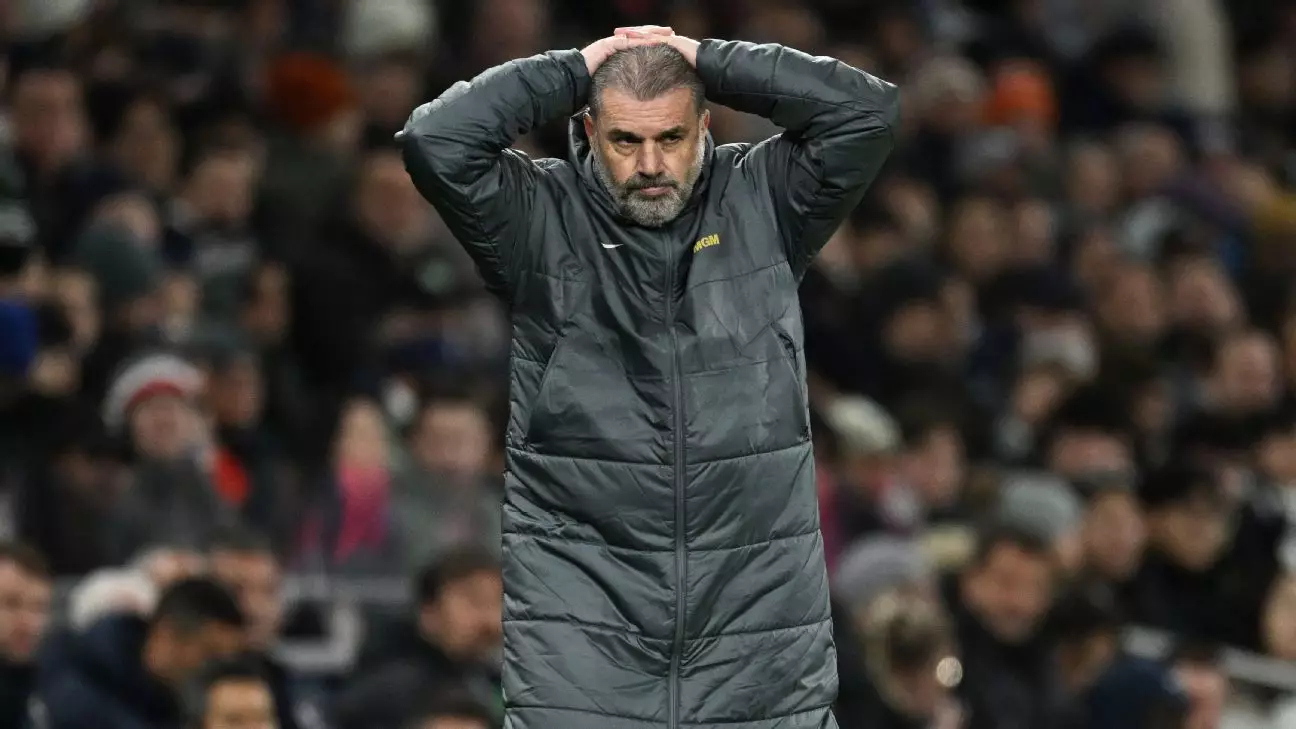The landscape for Tottenham Hotspur in the 2023 season has been anything but stable. Following a nail-biting 4-3 loss to Chelsea, manager Ange Postecoglou found himself amidst rising tensions and disappointment surrounding the team’s performance. Despite the optimistic start with goals from Dominic Solanke and Dejan Kulusevski putting Spurs ahead early, the match quickly morphed into a reality check as Chelsea executed a remarkable comeback. Tottenham’s inability to sustain their initial advantage raises critical questions about the squad’s resilience and the tactical approaches implemented by Postecoglou.
Contrasting the promise seen earlier in the season, Spurs presently sit in an underwhelming 11th place in the league, showing a dismal record that includes seven losses. This creates a frustrating narrative, particularly considering Postecoglou’s prior success, where his managerial debut led the team to a commendable fifth-place finish. The recent bitter loss not only left fans disheartened but also initiated a wave of discontent directed towards the manager himself. The uncertainty surrounding tactical efficacy and player performance is palpable, filling the atmosphere with apprehension as the club approaches the holiday season amid pressing schedule demands.
The recent injury ailments plaguing key players have further complicated matters. Cristian Romero’s early injury against Chelsea, paired with further setbacks involving Brennan Johnson and Micky van de Ven, has made it increasingly challenging for Postecoglou to field a consistent and competitive lineup. The cumulative effect is evident — an inability to rotate the squad leaves players fatigued and hampers on-field performance. It is not solely the physical injuries that incapacitate the team; mental fatigue seems to be rearing its head as speculation about the club’s immediate future looms larger each day.
Despite the dire circumstances, Postecoglou exudes a sense of belief in his squad and the attacking identity he wishes to cultivate. He pointedly addressed the media, emphasizing that the players remain committed to his vision of play. The manager noted, “It’s not through a lack of effort,” highlighting the intensity and dedication displayed by the players on the pitch. His insistence on focusing forward rather than getting bogged down by recent setbacks suggests a determined mindset—one that aims to navigate through storms rather than avoid them.
However, this unwavering belief can also be a double-edged sword. While it is essential for a leader to instill confidence and foster resilience among team members, it can become perilous if it blinds one to necessary tactical adjustments. Questionable decisions, such as sticking rigidly to a specific formation or approach despite evident deficiencies, risk alienating players and supporters alike. As the season progresses, Postecoglou must balance his ideals with the pragmatic adjustments that may be critical for survival in the competitive league.
Adding to the complexity of Tottenham’s struggles is the increasingly scrutinized role of officiating. Postecoglou voiced his frustrations following the Chelsea match, particularly regarding the questionable refereeing decisions—most notably the failure to penalize a late tackle that left many fans and analysts perplexed. This incident emphasizes a growing concern in modern football where managerial complaints about officiating seem to be a constant thread. Rather than solely focusing on their own teams, managers are increasingly tasked with dealing with systemic inconsistencies in the sport itself.
Postecoglou’s comments reveal the discontentment within the football community regarding the reliance on VAR and how it has evolved into an obstacle rather than a solution. This sentiment is shared by many managers and players alike, highlighting a broader conversation around accountability and the bureaucratic complexities introduced into the sport. It underscores that the burden of decision-making is now a collective challenge rather than the responsibility of a single referee on the pitch.
As Tottenham navigates this turbulent phase, the next steps are critical. Maintaining a steadfast belief in their collective identity while addressing the pressing need for tactical adaptability is essential for reversing their fortunes. The path to recovery entails more than just on-field adjustments; it also calls for robust management of player mindset and morale. If Postecoglou and his squad can find the resilience to weather this storm, they may yet restore their standing. The upcoming matches will be decisive, and the footballing community will be eager to see if Tottenham Hotspur can transform desperation into determination.

Leave a Reply